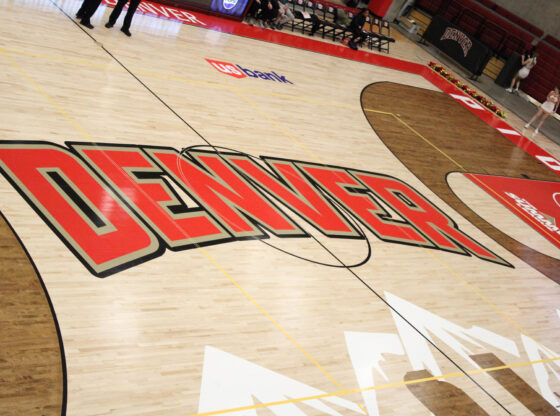On April 10, the University of Denver’s Turning Point USA chapter held an event at the Daniels College of Business. The event centered around a screening of a documentary titled “Art Club” about Erin Lee’s experience as a mother of a middle school child dealing with her gender identity.
The conclusion, which was conspiratorial in nature and largely devoid of credible evidence, claimed that public schools around the country employ teachers and organizations that are spreading a contagious “transgender ideology.” The event, however, seemed to encapsulate a larger phenomenon at play on campus surrounding the value of freedom of expression at the cost of giving misinformation a platform.
As a university, freedom of expression is and should be one of our closest-held values. College years are some of the most formative ones in our lives. The ability to express that process without fear of repercussion is beyond important, but in the shadows of this value lurks a tricky and illusive conflict.
Academic integrity is arguably as important of a value as freedom of expression for any university. This can be seen in every classroom. Not citing a source in a paper can lead to serious consequences, and citing a weak source can lead to a bad grade on a paper. But, outside of the classroom, this value can come into serious contact with the freedom of expression on campus, and there are no avenues for remedy when this happens.
This conflict of values is at the heart of what was so painful for many DU students that Wednesday afternoon. The University administration wanted to protect the right of Turning Point to express their opinions in screening the documentary. But it came at the cost of them showcasing false information, which completely disregards the value of academic integrity that we as students are required to uphold to graduate.
One of the more troubling examples of this disregard for intellectual integrity, a central characteristic of “Art Club,” is reflected in the figure of David Barton. The film labels him as a “Historian,” and he appears in the film to give his “expert” opinion on public education. Although Barton’s appearance was brief, a question during the Q&A session with the director of the movie, former state senator of Colorado Kevin Lundberg, illuminated a troubling justification as to what makes him a credible source.
“How do you refer to the people in your film as experts” when “[David Barton] is known as a pseudo-historian who frequently lies about facts” was the question asked.
Lundberg was quick to step up. “You won’t like the answer, but I know that gentleman very well” and “he is a historian who knows more on the subject than you, or I, or anyone else in the room.”
The student carried on, mentioning that the highest qualification he could find online was “a Bachelor’s degree in Christian education” with “no degree in any form of historical field.”
“I’m not going to entertain a rebuttal, I’m simply telling you. I know him, you don’t,” Lundberg replied.
The rest of his response was drowned out by the laughter of all of the students in the screening room, marking the end of the event.
But his justification really felt like a laugh in all of our faces. To come on our campus and present information while stating it as a fact only to back up one of your sources by stating “I know him, and you don’t” is the equivalent of spitting on the value of academic integrity. Using that same justification on a paper for a class would lead to bewilderment on behalf of any professor. The fact that he thought he could get away with that comment shows how ill-prepared he was to deal with students who take education seriously.
Another “authoritative” figure who is interviewed throughout the film, Journalist and Author Alex Newman, also epitomizes the disregard for academic integrity that characterizes the film. Throughout the documentary, he consistently makes serious claims on a wide range of subjects and seemingly forgets to provide any serious evidence to back them up.
For example, at one point in the film he claims that “if you read the early queer theorists, they were talking about normalizing and legalizing pedophilia.” He then continues without specifying who these early queer theorists are and what exactly it is they said. He just carries on as if you are expected to believe he is an expert on early Queer theory.
What makes this so disgusting is that his claim is connected to a fringe conspiracy that can have, and has had, serious consequences. Not only has this conspiracy been used to justify restrictive educational policies, but it has also resulted in a spike in harassment and even violence toward the LGBTQ+ community.
To be clear, these are just several examples of where this film attacks our appreciation of academic integrity. Unfortunately, this event is not, and will not be, a one-off event. More events will likely occur on campus because of how protected freedom of expression is.
MJ Hyde, president of the Undergraduate Student Government, when discussing why this event was able to occur said that “the University is trying to move forward with this freedom of expression and encouraging plurality agenda.” To her, it seems as if “they have kind of tied their hands.” As a result, the right to freedom of expression “has to be given to everyone.”
“What I’m concerned about is when this opinion” that is being protected “is proposed as a fact” she continued. Hyde is also the undergraduate representative for DU’s Freedom of Expression Committee where she sits alongside numerous faculty and administrators in leadership positions. According to her, they held a meeting to discuss Turning Point’s event, because as she put it, they were asking the question: “Is this even allowed?”
Even if the event was not allowed according to them, the Freedom of Expression committee does not have the power “to restrict or prevent events from taking place.” Then who does? It does not seem that our campus has any enforcement mechanisms to prevent misinformation from being given a platform.
The issue at play is that the freedom of expression has very little, if any, limits on campus. Meanwhile, the value of academic integrity, a value that is only upheld inside the classroom, is being trampled on in an environment that is supposed to epitomize the dissemination of accurate information.
The topic of disinformation and misinformation is more important than ever in our current political climate. The increase in technology and the expansion of the internet has led to an exponential increase in the amount of information available for consumption. We are also experiencing a political crisis concerning false information, with politicians using conspiracies to incite violence as we all saw on Jan. 6, 2021.
Academic institutions these days seem to be a rare safe haven in our society from the spread of misinformation. Therefore, I am begging for mechanisms to be created to embrace and secure our information safe haven and done so in a way that allows academic integrity to coexist with the value of freedom of expression. The two characteristics can and should be able to coexist here, and conditioning students to understand that they can coexist will create a healthier political ecosystem as our generation ages.











